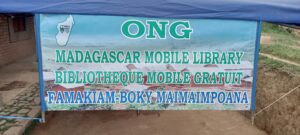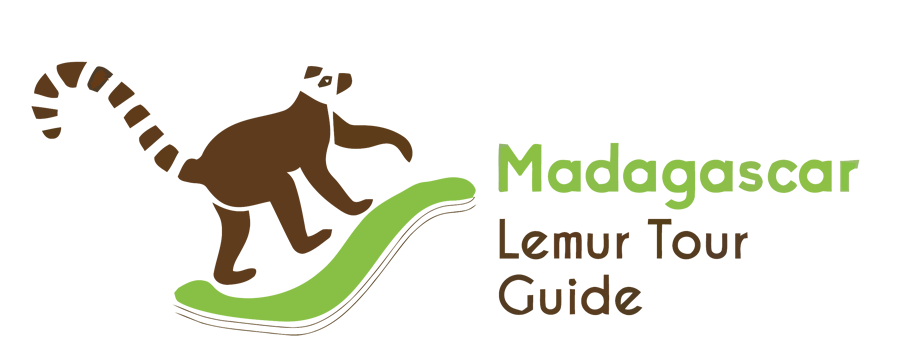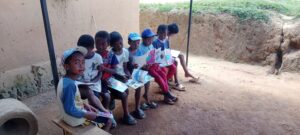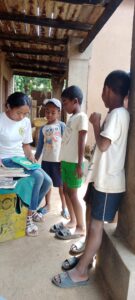We will allow kids to check out books under a filing system where they receive special book cards that track reading progress. We track progress by providing stickers or stamps for each book returned or for meeting reading goals. Once they fill the book card and pass certain literacy tests the kids are rewarded and publicly congratulated. As an incentive, project manager Jean Jacques also rewards children with clothing for reaching reading goals.
Adults will be able to check out books under the same filing system. We will provide various kinds of book topics and SD cards with literacy material. Items chosen for the mobile library will reflect useful knowledge as a way to improve agricultural practices, family relations and health, environmental issues, sexual health, DIY and trades etc. We also aim to provide topical fiction books that inspire and address cultural taboos. We will supply books in which the communities themselves express an interest; everyone is allowed to request books. Additionally, adults who cannot read are offered the same “learning to read” opportunities as children.
We aim to involve the communities we serve as a grounds committee. This makes the community feel a sense of ownership, builds trust and assists with some maintenance for the mobile library.
We engage the Malagasy people through pre-scheduled workshops as a means of guidance and fluid communication. For example, Jean Jacques will hold a discussion about a tribe’s basic and general needs in relation to quality of life. We will then provide educational materials that address those needs where practicable.
Together, we want to find “locally relevant solutions, often built on ‘hybrids’ that mix local traditions with modern best practice.” Other talks and workshops will focus on various topics: health lectures, UNICEF type events, environmental issues, kids events, literacy lessons, follow ups on community needs solutions, etc.





